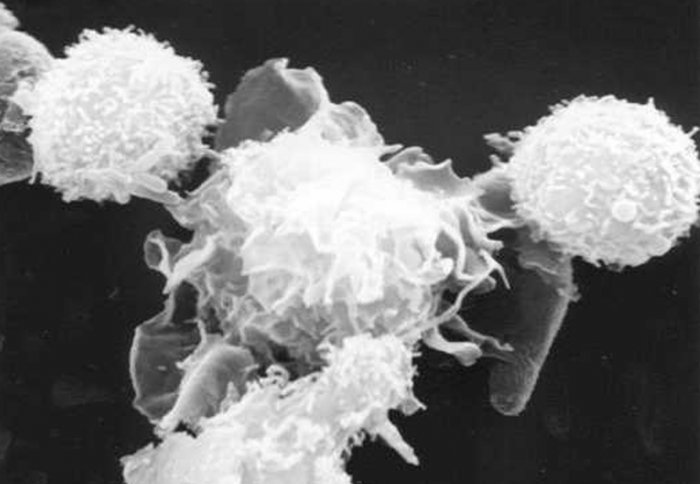Antigen Presentation Research Group (APRG)

A news summary from the Antigen Presentation Research Group (APRG)
Headed by Professor Stella C. Knight, the Antigen Presentation Research Group (APRG) operates at the interface between laboratory research and clinical medicine.
Research and Education Developments
The Antigen Presentation Research Group (APRG) on the Northwick Park and St Mark’s campus welcomes Dr Pascale Kropf, Non-Clinical Senior Lecturer in Immunology, to the group in March 2013.
Dr Kropf is a pioneer in the understanding of arginase-induced arginine metabolism in infectious diseases. Her work will be extended to identify the role of these pathways in the normal and infected human gut.
Recent Publications
Tissue targeting of immune activity in humans
Recent publications from the Antigen Presentation Research Group identify a novel mechanism for changing the target organ of immune activity in humans. We have shown that dendritic antigen presenting cells normally stimulate T cells that home back to the organ from which these cells migrate and that environmental cues from those sites determine these specificities. We now show that stimulation of abnormal homing activity towards the skin can occur in inflammatory bowel disease, particularly where extra-intestinal manifestations of inflammatory disease occur in the skin. Treatment of patients with Crohn’s disease with Infliximab can occasionally result in skin manifestations of disease and we show that this treatment can induce skin homing T cells; this activation may provide an explanation for skin inflammation. Understanding of the mechanisms changing tissue targeting of immunity may provide new strategies for focusing immune activity to different sites.
Peptide secreted from commensal bacteria (“postbiotics”) as new therapeutic agents
We have identified a protease resistant peptide secreted by a human commensal Lactobacillus that has many of the potentially beneficial effects on immune activity in vitro that we associate with anti-inflammatory effects in the human gut in vivo. This material is patented and we are proceeding with tests in animal models for identifying potential beneficial effects on gut inflammation.
- Our recent publications can be found on our website.
Recent events
The Antigen Presentation Research Group are one of three Imperial College research groups who are active members of The Gut Health and Food Safety (GHFS) research programme, which with funding from the BBSRC - Biotechnology and Biological Sciences Research Council is a collaborative initiative involving leading researchers from the Institute of Food Research, Imperial College, University of East Anglia and St. Mark's Hospital and Academic Institute
Members of the Antigen Presentation Research Group and St Mark’s Hospital attended the GHFS Programme’s inaugural annual symposium on 5 March 2013; Dr David Bernardo Ordiz from APRG presented a seminar entitled “Can dendritic cells become adipocytes?”
If you would like to know more about this research programme please see: http://www.ifr.ac.uk/ghfs/
Public Engagement
The GHFS runs a regular public engagement research blog. To view the latest blogs please see: http://blogs.ifr.ac.uk/ghfs/ and our latest information which is: http://blogs.ifr.ac.uk/ghfs/2013/02/njem-microbiota-transplant/
Article text (excluding photos or graphics) © Imperial College London.
Photos and graphics subject to third party copyright used with permission or © Imperial College London.
Reporter
Alison Scoggins
Department of Metabolism, Digestion and Reproduction